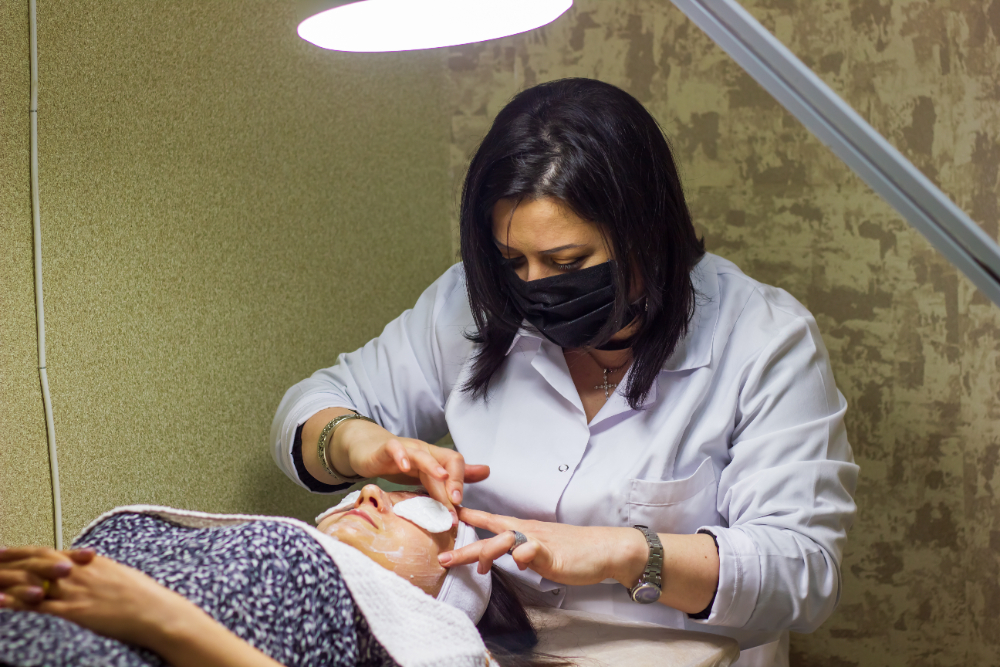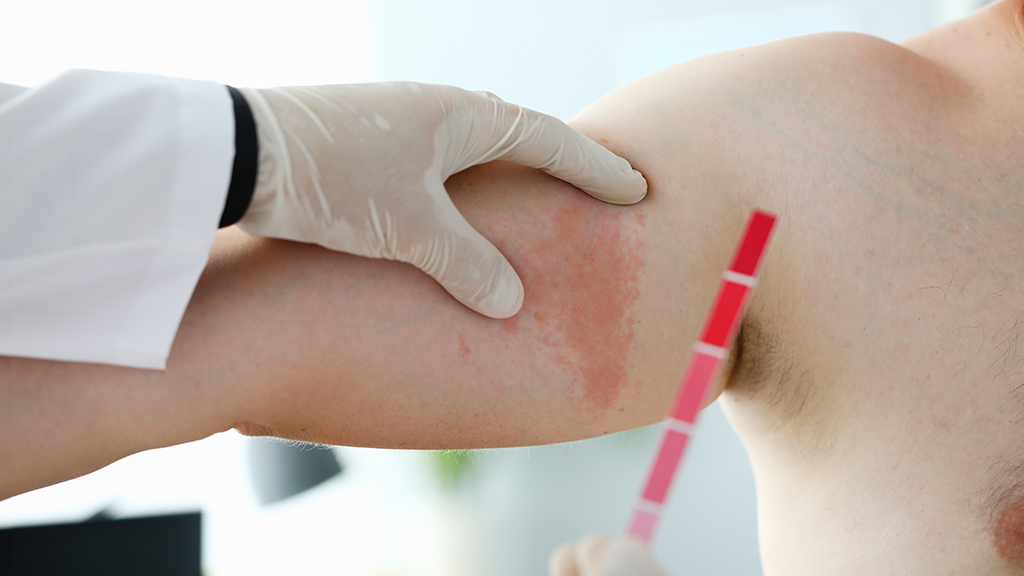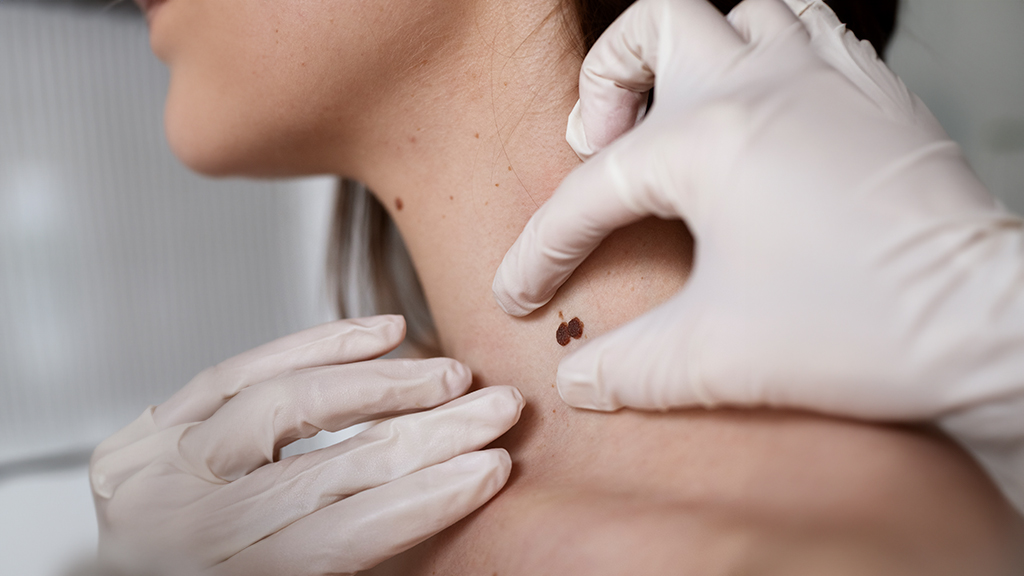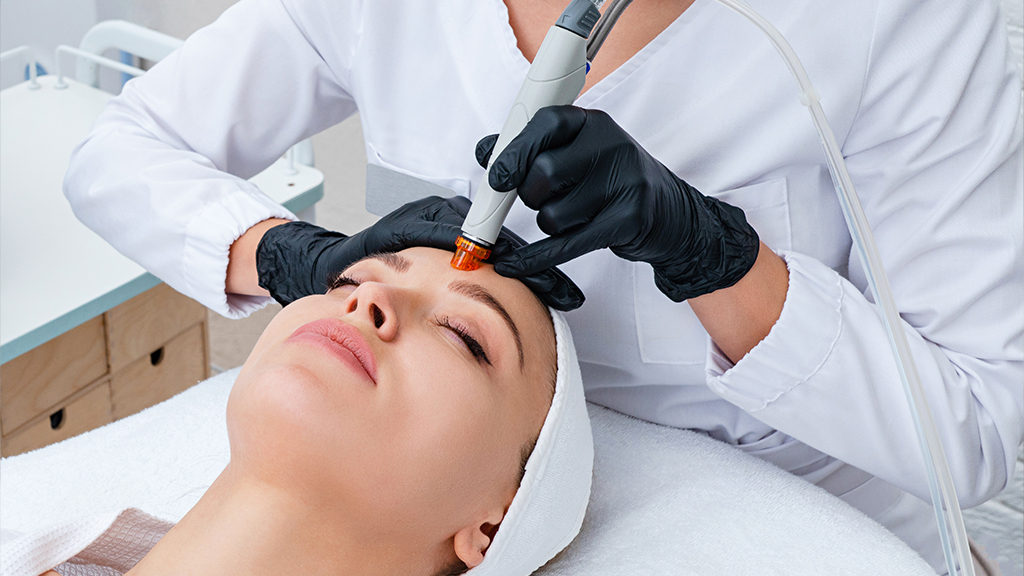
Dermatology

Services Offered

Treatment for acne, eczema, and psoriasis
Acne, eczema, and psoriasis are common skin conditions that can significantly impact a person’s quality of life. Proper treatment and skincare routines can help manage symptoms and improve skin health.
Acne is a skin condition that results from clogged pores, causing pimples, blackheads, and cysts. Treatment typically involves topical treatments like retinoids, benzoyl peroxide, and salicylic acid, as well as oral medications for more severe cases. Lifestyle changes, such as a balanced diet and good skincare habits, can also play a role in controlling acne.
Psoriasis is an autoimmune condition where skin cells multiply too quickly, resulting in scaly patches. Treatment options include topical steroids, phototherapy, and systemic medications to control symptoms and reduce inflammation. Regular moisturizing, avoiding triggers like stress and certain medications, and following a prescribed treatment plan are key to managing psoriasis.
Each condition requires an individualized approach, and working closely with a dermatologist can help develop the most effective treatment plan for long-term relief and skin health.
Skin biopsy and allergy testing

Skin Biopsy is a diagnostic procedure where a small sample of skin is removed for examination under a microscope. It is used to identify various skin conditions such as skin cancer, infections, rashes, and inflammatory skin diseases. A skin biopsy can help doctors confirm diagnoses and determine the best course of treatment. The procedure is typically quick and performed with local anesthesia to ensure minimal discomfort. After the biopsy, the sample is analyzed to provide insight into the condition affecting the skin.
Allergy Testing involves evaluating the body’s immune response to various allergens. Skin tests, such as prick or patch tests, are commonly used to diagnose allergies to substances like pollen, dust, pet dander, food, or medications. During these tests, small amounts of allergens are introduced to the skin, and reactions are observed. Blood tests may also be used to measure the immune system’s response to specific allergens. Allergy testing helps in identifying triggers and guiding the development of personalized treatment plans, such as avoidance strategies or allergy medications.
Both procedures play a critical role in accurately diagnosing skin conditions and allergies, enabling healthcare providers to tailor treatments for optimal patient care.
Mole and Cyst Removal
Mole and Cyst Removal is a simple procedure performed to remove growths or lesions on the skin that may be bothersome, potentially cancerous, or medically unnecessary. Mole removal is typically done for cosmetic reasons or when a mole changes in appearance, which could indicate skin cancer. The procedure involves the use of local anesthesia to numb the area, followed by excision with a scalpel or laser. The mole is carefully removed, and the wound is closed with stitches if necessary.

Cyst removal is often performed when cysts, which are non-cancerous lumps filled with fluid or other substances, become painful, infected, or grow in size. The removal process involves sterilizing the area, making a small incision, and carefully extracting the cyst. Both procedures are usually quick and outpatient, with minimal recovery time. Post-removal, the skin is monitored for healing, and any removed tissue may be sent for biopsy to rule out potential underlying health issues.
These procedures are effective in improving the skin’s appearance and reducing health risks associated with certain growths
Treatment for all skin, hair and nail conditions

Comprehensive Care for Skin, Hair, and Nail Health focuses on addressing a wide variety of conditions that affect these areas, ensuring both cosmetic and medical concerns are managed effectively.
For skin conditions, treatments are available for acne, eczema, psoriasis, rosacea, dermatitis, and skin infections. These conditions are managed through a combination of topical treatments, oral medications, light therapy, and sometimes, surgical options, depending on severity.
For hair issues, treatment covers conditions like hair loss, dandruff, scalp infections, and alopecia. Solutions range from topical treatments like minoxidil to advanced procedures like PRP (Platelet-Rich Plasma) therapy, which stimulates hair regrowth. In some cases, hair transplant surgery may be recommended for permanent hair restoration.
Nail care includes the treatment of fungal infections, nail psoriasis, ingrown nails, and other abnormalities. Treatments may involve antifungal medications, minor surgical interventions, or topical ointments to promote healthy nail growth.
Through a tailored approach, we provide holistic care to restore and maintain the health and appearance of your skin, hair, and nails.
